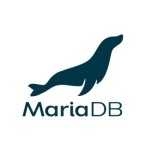We use MySQL as a light database engine to provide database service to our web application.
Almost all of our software engineers use MySQL.
We want to continue using MySQL but it merged with Oracle and the scalage changed. After they merged, we tried MariaDB.
For two years, we tried MongoDB and prepared for application migration; all because the scalability changed when MySQL merged with Oracle.
This solution is very easy to use. It's stable and very quick. MySQL is a light database. It's not very complex. It's easy to develop, easy to maintain, and easy to back up and restore.
Our software team has been using MySQL for more than eight years.
It's hard to say if MySQL is scalable as we've never tried to scale it.
We have never had to contact support.
We installed MySQL Database on our server. It took roughly 12 to 13 minutes to install it.
Installation was done by our software team's engineers — seven to eight of them.
We've never bought a commercial license. We just use the open-source community edition.
We evaluated other databases and products, including EnterpriseDB and PostgreSQL. The latter was scalable, but it wasn't easy to use. MySQL is much easier to use and install. Before MySQL merged with Oracle, our software engineers were very satisfied.
We recommend MySQL to our customers and other partners. The only problem relates to the business strategy from Oracle. For this reason, most MySQL users are considering migrating to MariaDB.
Overall, on a scale from one to ten, I would give this solution a rating of nine. We're very satisfied with MySQL. If we could scale-out further, I would give it a ten. We need a database cluster or a scalable database solution for our future applications.




















